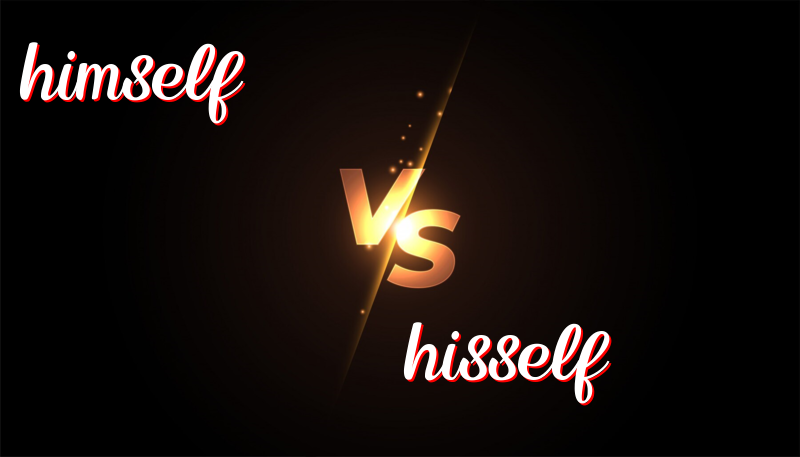Understanding the Difference Between Himself and Hisself
Himself vs. Hisself
The words “himself” and “hisself” are used to talk about a male person when he is doing something on his own. But, only one of these words is right to use in proper English.
History
The word “himself” is the correct word. It has been used in English for a long time. “Hisself” is not correct in standard English. It is sometimes used in some places by mistake, but it’s not proper English.
How to Use Them
We use “himself” as a reflexive pronoun. This means it is used when the person doing the action is the same as the person receiving the action. “Himself” is the right word to use. “Hisself” is not correct.
Trick to Remember the Difference
Remember that “himself” is like “him” + “self.” Both “him” and “himself” are correct. The word “hisself” has “his,” like in “his shoes,” but it’s not right to use for reflexive actions.
Example Sentences: “Himself”
- He cooked dinner by himself.
- He saw himself in the mirror.
- He did the homework all by himself.
- He is proud of himself.
- He drove himself to school.
Example Sentences: “Hisself”
Note: These are not correct but show common mistakes.
- He cooked dinner by hisself. (Incorrect)
- He saw hisself in the mirror. (Incorrect)
- He did the homework all by hisself. (Incorrect)
- He is proud of hisself. (Incorrect)
- He drove hisself to school. (Incorrect)
Summary
To sum up, always use “himself” when you want to say a male person is doing something to or for his own person. “Himself” is correct, while “hisself” is not correct in proper English. Remember, “him” matches with “self” to make “himself” the right word.

Leave a Reply
You must be logged in to post a comment.